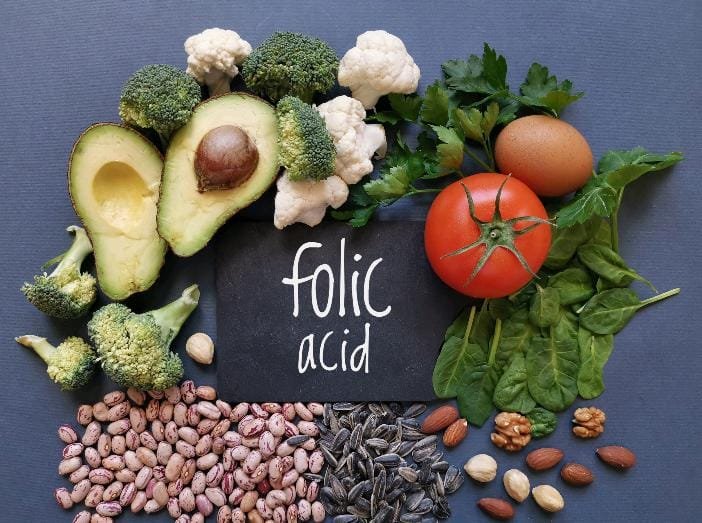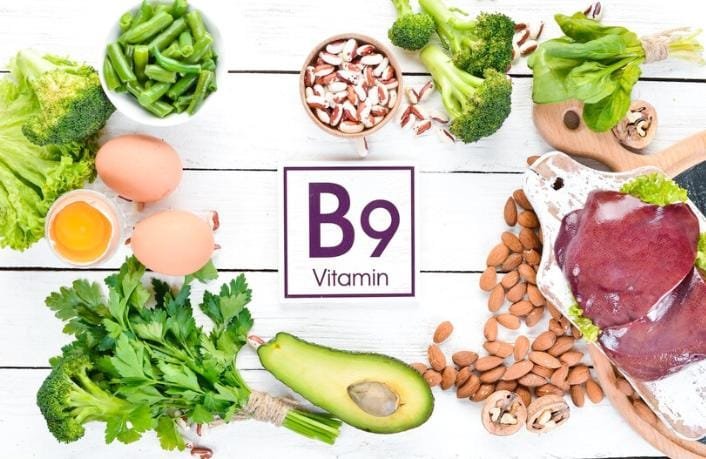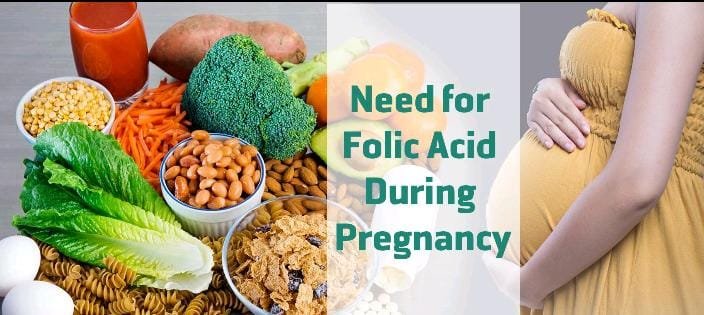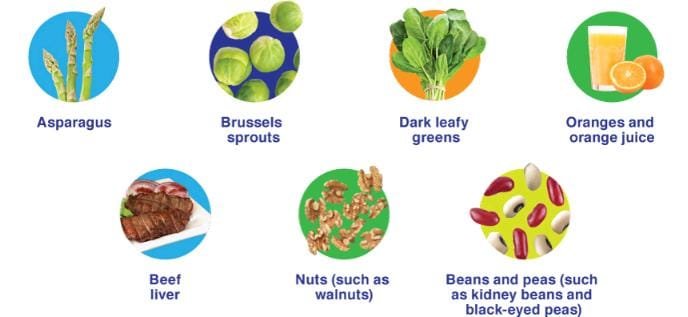
Folic Acid – Essential for Women of Childbearing Age
Folic Acid – Essential for Women of Childbearing Age
Good nutrition plays a vital role in maintaining overall health, especially for women during their childbearing years. Among the many nutrients that support female reproductive health, folic acid is one of the most important. Known as a form of vitamin B9, folic acid helps the body produce healthy cells and is particularly critical for women who are planning a pregnancy or are already expecting.
This article explores why folic acid is essential for women of childbearing age, its health benefits, food sources, recommended intake, and the impact of deficiency.
What is Folic Acid?

Folic acid is the synthetic form of folate, a water-soluble B vitamin (Vitamin B9). While folate occurs naturally in foods like leafy greens, beans, and citrus fruits, folic acid is used in supplements and fortified foods because of its stability and easy absorption.
Folic acid plays a crucial role in:
- Producing DNA and genetic material
- Supporting cell division and growth
- Promoting healthy brain and nervous system development
- Preventing certain birth defects during pregnancy
Why Folic Acid is Essential for Women of Childbearing Age

Folic Acid – Essential for Women of Childbearing Age
Women in their reproductive years have unique nutritional needs, especially if they are planning to conceive. Here’s why folic acid is so important during this stage of life:
1. Prevents Neural Tube Defects (NTDs)
Folic Acid
One of the most important roles of folic acid is preventing neural tube defects in babies. The neural tube forms the baby’s brain and spinal cord within the first few weeks of pregnancy, often before a woman even realizes she is pregnant. Adequate folic acid intake reduces the risk of defects such as spina bifida and anencephaly.
2. Supports Healthy Pregnancy
Folic acid supports the formation of the placenta and helps the fetus grow properly. Women who take folic acid before and during pregnancy are less likely to experience complications such as preterm birth or low birth weight.
3. Reduces Risk of Anemia
Folic acid helps the body produce healthy red blood cells, preventing certain types of anemia that cause fatigue, weakness, and complications during pregnancy.
4. Promotes Fertility and Reproductive Health
Research suggests that folic acid supports egg quality and ovulation, making it beneficial for women trying to conceive.
5. Improves Overall Health
Beyond pregnancy, folic acid plays a role in supporting heart health, brain function, and even mental well-being. It helps lower homocysteine levels, reducing the risk of cardiovascular issues.
Daily Recommended Intake of Folic Acid
Folic Acid – Essential for Women of Childbearing Age
The daily folic acid requirement varies depending on age and reproductive status:
- Women of childbearing age (15–45 years): 400 mcg daily
- Pregnant women: 600 mcg daily
- Breastfeeding women: 500 mcg daily
Since many pregnancies are unplanned, experts recommend that all women of childbearing age take folic acid supplements regularly to ensure protection if pregnancy occurs.
Natural Food Sources of Folate

While supplements are recommended, women can also boost their intake of natural folate from foods such as:
- Dark leafy greens (spinach, kale, broccoli)
- Citrus fruits (oranges, lemons)
- Legumes (beans, lentils, peas)
- Avocados
- Beets
- Asparagus
- Eggs
- Fortified cereals and bread
However, cooking and processing can destroy folate in foods, which is why supplements and fortified foods are often necessary to meet daily requirements.
Folic Acid Supplements
Most women are advised to take folic acid supplements daily, even before pregnancy. Supplements usually come in 400–800 mcg doses, and many prenatal vitamins include folic acid along with iron, vitamin D, and other nutrients.
For women with higher risk factors (such as a family history of neural tube defects or certain medical conditions), doctors may recommend a higher dose.
Consequences of Folic Acid Deficiency
Not getting enough folic acid can cause serious health problems, especially for women planning to have children. Some common effects include:
- Higher risk of neural tube defects in babies
- Increased chances of premature birth or miscarriage
- Megaloblastic anemia (enlarged, immature red blood cells)
- Extreme fatigue, weakness, and irritability
- Memory problems and poor concentration
Folic Acid and Long-Term Health Benefits
Apart from pregnancy-related benefits, folic acid also plays a role in maintaining long-term health:
- Supports Brain Health – Low folate levels have been linked to depression and cognitive decline.
- Protects Heart Health – By lowering homocysteine, folic acid reduces cardiovascular risk.
- May Lower Cancer Risk – Adequate folate intake is associated with reduced risks of certain cancers, though more research is needed.
Tips to Ensure Adequate Folic Acid Intake
- Start Early – Don’t wait until pregnancy to begin supplementation. Take folic acid daily if you are of childbearing age.
- Choose Prenatal Vitamins – If you’re planning pregnancy, prenatal vitamins with folic acid are the best choice.
- Eat a Balanced Diet – Combine supplements with folate-rich foods for maximum benefit.
- Consult a Doctor – Women with health conditions like diabetes or digestive issues may need higher doses.
Final Thoughts
Folic acid is more than just a pregnancy vitamin — it is a lifelong nutrient that supports women’s reproductive health, prevents anemia, and promotes overall wellness. For women of childbearing age, its importance cannot be overstated. Since the early weeks of pregnancy are critical for fetal brain and spinal development, ensuring adequate folic acid intake before conception is one of the most effective ways to protect both mother and child.
In short, Folic Acid – Essential for women of childbearing age is not just a guideline but a crucial step toward healthier pregnancies, stronger babies, and improved women’s health.
